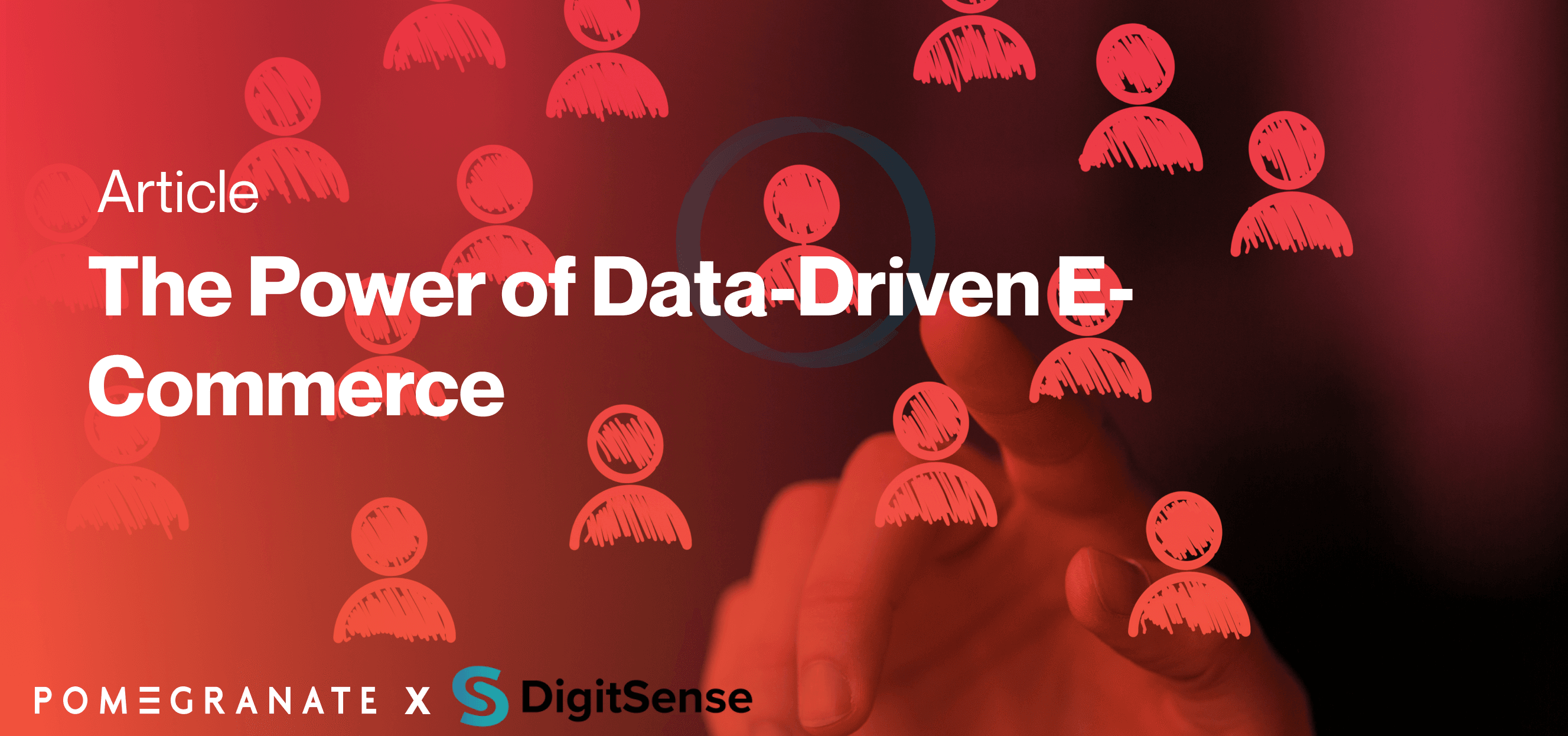Why AI isn't optional anymore for online retailers
The days of treating artificial intelligence (AI) as a futuristic luxury are officially over. For e-commerce businesses, AI has transformed from a competitive edge into a baseline necessity, with 84% of companies now prioritising its implementation¹.
The shift isn't just trendy tech posturing; it's a response to measurable, significant business impact. Companies implementing AI report an average **revenue increase of 10-12%**².
But what's driving this urgency?
The growing sophistication of customer expectations. Today's online shoppers demand personalisation at every touchpoint. They expect frictionless experiences, anticipating their needs, and they'll abandon carts without hesitation when their expectations aren't met.
As global e-commerce sales reach $8 trillion by 2027³, businesses experiencing exponential sales growth will strategically leverage artificial intelligence in e-commerce across their operations.
Where AI delivers tangible returns for e-commerce
Across the e-commerce ecosystem, AI is generating concrete, measurable returns:
Revenue acceleration
Beyond the overall 10-12% revenue lift, AI implementation creates multiple revenue-enhancing effects:
- Personalisation through AI leads to a 40% increase in revenue⁴
- AI-powered recommendation engines drive between 35-40% of sales for businesses that implement them effectively⁵
- Dynamic pricing algorithms boost profits by 5-10% through real-time price adjustments⁶
Operational efficiency
The back-office impact is equally compelling:
- AI-enabled supply chain planning has increased revenue by up to 4%, reduced inventory by up to 20%, and lowered supply chain costs by up to 10%⁷
- Marketing ROI improves by 15-25% when AI is used to personalise customer interactions⁸
- Email marketing supported by AI personalisation achieves a remarkable 38:1 ROI⁹
Implementation timeline
The financial impact isn't years away either.
High-performing AI implementations typically show positive ROI within 6-9 months for customer-facing applications, while back-office implementations (inventory management, demand forecasting) generally require 12-18 months¹⁰.
Calvin Klein: Targeted engagement that pays off
One example of AI delivering precise, measurable value comes from Calvin Klein.
Faced with rising cart abandonment on high-value items and without the option to discount heavily, they turned to machine learning to uncover the problem.
By processing real-time behavioural data, they identified a clear hesitation point: shoppers were pausing, not refusing.
Rather than offering blanket incentives, Calvin Klein used AI to trigger personalised instalment offers for price-sensitive customers when they were most likely to abandon their cart.
The result? A seamless blend of personalisation and profitability.

With a 32× ROI, a 2.87× lift in average basket size, 15% revenue growth, and a 1.8× boost in conversions¹¹, Calvin Klein's team were able to implement AI interventions that unlocked significant gains.
Challenges to successful AI implementation
AI implementation delivers strong returns—but only when approached with the right strategy, infrastructure, and expertise. Success depends on having a knowledgeable team that can anticipate and overcome the common hurdles that often derail AI initiatives.
Data quality and management
AI algorithms require vast amounts of high-quality data, yet 56% of companies cite poor data quality as a primary barrier to adoption¹.
Technical integration complexities
Legacy systems often obstruct AI integration, requiring detailed mapping of current systems and solutions for smooth data flow between platforms¹².
Privacy and security concerns
With 40% of online shoppers avoiding purchases due to data security concerns, ensuring compliance with regulations like GDPR and CCPA is essential¹³.
Talent and expertise gaps
Finding and retaining skilled AI talent remains challenging, with 38% of companies facing shortages in implementation expertise¹⁴.
Even with these challenges, businesses that align AI initiatives with clear objectives—and invest in the right people and infrastructure—are best positioned for success. However, effective AI implementation is never a guesswork exercise; it must be intentional, informed, and embedded in business strategy.
Conclusion
The business case for AI in e-commerce is no longer up for debate. AI is fundamentally reshaping how retailers operate and compete, from driving revenue and improving efficiency to delivering deeply personalised customer experiences.
While challenges exist, leaders like Calvin Klein show that with a clear strategy, the right tools, and thoughtful execution, AI adoption delivers real, measurable results.
For today's online retailers, the question isn't if they should implement AI, but how fast and how effectively they can do so to stay ahead in an increasingly AI-driven market.
References
References
[1] McKinsey & Company, "Generative AI in retail: LLM to ROI," 2024. [2] Datascience, "Challenges for AI in e-commerce," 2024. [3] G2, "2024 Trends: AI to Revolutionise E-commerce Personalisation," 2024. [4] SPD Technology, "Generative AI in eCommerce: Applications and Trends," 2024. [5] iMerit, "25 Best Retail, Sales, and Ecommerce Datasets for Machine Learning," 2024. [6] Digitalocean, "AI in E-commerce: Artificial Intelligence Trends Shaping the Future of Retail in 2025," 2025. [7] Bloomreach, "AI for Ecommerce: How It's Transforming the Future," 2024. [8] Keymakr, "Using AI for Demand Forecasting in E-commerce," 2024. [9] Master of Code, "Generative AI in Retail: Use Cases with Real-Life Examples," 2024. [10] SellersCommerce, "AI In ECommerce Statistics (2025)," 2025. [11] Quinengine, "Calvin Klein drives 32x ROI offering timely payment flexibility and targeted incentives," 2024. [12] Sand Technologies, "From Investment to Impact: A Practical Guide to Measuring AI ROI," 2024. [13] Appinventiv, "How Machine Learning is Shaping eCommerce - 10 Benefits, Use Cases, Best Practices," 2024. [14] Bloomreach, "Measuring ROI of Machine Learning in Ecommerce," 2024.





